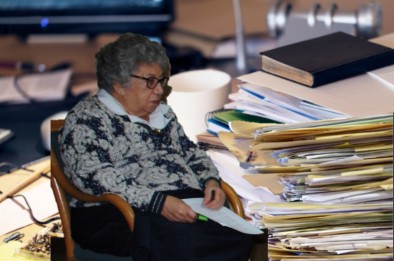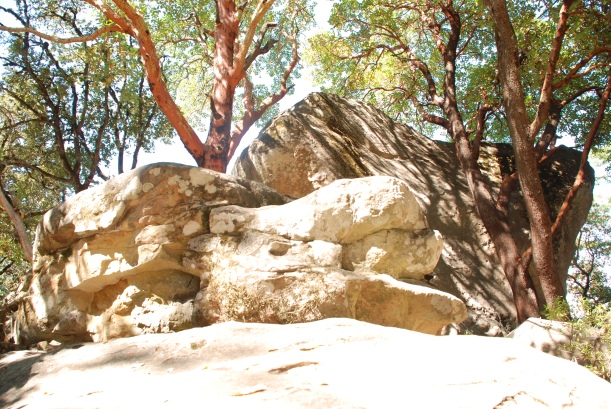By Mary Terzian
This question led me to thinking. What did I do when I ran out of ideas? Chances are, in the past I ran out of time, but not thoughts. Nowadays the situation has changed. I have slowed down. I chew o n my words and rely on dictionaries. When I can’t find the exact word that does justice to my tale, I spend hours chasing the exact word in different dictionaries until my need is satiated.
n my words and rely on dictionaries. When I can’t find the exact word that does justice to my tale, I spend hours chasing the exact word in different dictionaries until my need is satiated.
This question led me to thinking. What did I do when I ran out of ideas? Chances are, in the past I ran out of time, but not thoughts. Nowadays the situation has changed. I have slowed down. I chew on my words and rely on dictionaries. When I can’t find the exact word that does justice to my tale, I spend hours chasing the exact word in different dictionaries until my need is satiated.
When I am hopelessly blocked I go to the piles of discarded, homeless papers sitting on every flat surface in my house. They are the products of my peak moments of elucidation. Filing them in some reasonable order calms my nerves. I delve into each pile, hoping to find new trends of thought or samples of my ideas of yore. Sometimes I marvel at what I find in impeccable English, sometimes I am embarrassed at my not-so-bright expressions. Instead of decreasing or creating a nest for these in my files, my process expands the piles into indescribable mounds; telephone numbers with no names; half-chewed songs, unfinished stories; bursts of anger; sentences that need to be harvested because they sound so good; business cards; illegible scribbles; a powerful quatrain looking for a title et al. I try to put the indescribable categories together, certain that if I drop them in a file I will lose track of them.
Among the paraphernalia, I come across some good ideas that have not been developed for lack of time. Facing Writers’ Block, in my undecided status of where to begin, I collect some ideas, dreams of yore, fresh directions to follow. However, I feel like I have inadvertently stepped on an ants’ colony and dispersed their community. Some of the scribbles are unreadable but I am confident I will find fodder to ferment my imagination and set me going. I get particularly annoyed when I find grocery lists, purchase receipts, bank deposit slips, credit etc. They certainly are not sources of inspiration. What do they have to do with writers’ block?
In my ‘triage’ I choose which paper slips will survive for another decade, and which will perish immediately. I am tempted to burn or toss them out without hesitation. Or perhaps blow them to the winds, and walk out of my addiction to pen and ink. Oops! I meant screen and website.
Sobriety takes over. I toss the odd paraphernalia into a separate basket, just like quality soiled linen, too dirty to wash but too precious to discard. I call them ‘basket cases’ because they are indefinable. I could throw them out, but of what use will my neat house be when my flashes of imagination disappear? To me they represent a savings bank of hopes and dreams, the sap that will now trigger new avenues of thought to cure my writer’s block.
This question led me to thinking. What did I do when I ran out of ideas? Chances are, in the past I ran out of time, but not thoughts. Nowadays the situation has changed. I have slowed down. I chew on my words and rely on dictionaries. When I can’t find the exact word that does justice to my tale, I spend hours chasing the exact word in different dictionaries until my need is satiated.
When I am hopelessly blocked I go to the piles of discarded, homeless papers sitting on every flat surface in my house. They are the products of my peak moments of elucidation. Filing them in some reasonable order calms my nerves. I delve into each pile, hoping to find new trends of thought or samples of my ideas of yore. Sometimes I marvel at what I find in impeccable English, sometimes I am embarrassed at my not-so-bright expressions. Instead of decreasing or creating a nest for these in my files, my process expands the piles into indescribable mounds; telephone numbers with no names; half-chewed songs, unfinished stories; bursts of anger; sentences that need to be harvested because they sound so good; business cards; illegible scribbles; a powerful quatrain looking for a title et al. I try to put the indescribable categories together, certain that if I drop them in a file I will lose track of them.
Among the paraphernalia, I come across some good ideas that have not been developed for lack of time. Facing Writers’ Block, in my undecided status of where to begin, I collect some ideas, dreams of yore, fresh directions to follow. However, I feel like I have inadvertently stepped on an ants’ colony and dispersed their community. Some of the scribbles are unreadable but I am confident I will find fodder to ferment my imagination and set me going. I get particularly annoyed when I find grocery lists, purchase receipts, bank deposit slips, credit etc. They certainly are not sources of inspiration. What do they have to do with writers’ block?
In my ‘triage’ I choose which paper slips will survive for another decade, and which will perish immediately. I am tempted to burn or toss them out without hesitation. Or perhaps blow them to the winds, and walk out of my addiction to pen and ink. Oops! I meant screen and website.
Sobriety takes over. I toss the odd paraphernalia into a separate basket, just like quality (delete -I have held on to)
soiled linen, too dirty to wash but too precious to discard. I call them ‘basket cases’ because they are indefinable. I could throw them out, but of what use will my neat house be when my flashes of imagination disappear? To me they represent a savings bank of hopes and dreams, the sap that will now trigger new avenues of thought to cure my writer’s block.
When I am hopelessly blocked I go to the piles of discarded, homeless papers sitting on every flat surface in my house. They are the products of my peak moments of elucidation. Filing them in some reasonable order calms my nerves. I delve into each pile, hoping to find new trends of thought or samples of my ideas of yore. Sometimes I marvel at what I find in impeccable English, sometimes I am embarrassed at my not-so-bright expressions. Instead of decreasing or creating a nest for these in my files, my process expands the piles into indescribable mounds; telephone numbers with no names; half-chewed songs, unfinished stories; bursts of anger; sentences that need to be harvested because they sound so good; business cards; illegible scribbles; a powerful quatrain looking for a title et al. I try to put the indescribable categories together, certain that if I drop them in a file I will lose track of them.
Among the paraphernalia, I come across some good ideas that have not been developed for lack of time. Facing Writers’ Block, in my undecided status of where to begin, I collect some ideas, dreams of yore, fresh directions to follow. However, I feel like I have inadvertently stepped on an ants’ colony and dispersed their community. Some of the scribbles are unreadable but I am confident I will find something that will set me going. I get particularly annoyed when I find grocery lists, purchase receipts, bank deposit slips, credit etc. They certainly are not sources of inspiration. What do they have to do with writers’ block?
In my ‘triage’ I choose which paper slips will survive for another decade, and which will perish immediately. I am tempted to burn or toss them out without hesitation. Or perhaps blow them to the winds, and walk out of my addiction to pen and ink. Oops! I meant screen and website.
Sobriety takes over. I toss the odd paraphernalia into a separate basket, just like I have held on to soiled linen, too dirty to wash but too precious to discard. I call them ‘basket cases’ because they are indefinable. I could throw them out, but of what use will my neat house be when my flashes of imagination disappear. To me they represent a savings bank of hopes and dreams, the sap that will now trigger new avenues of thought to cure my writer’s block.



